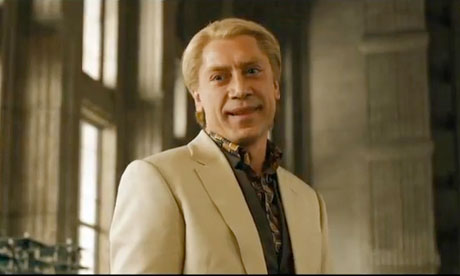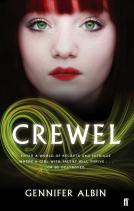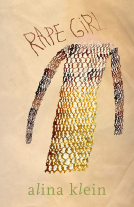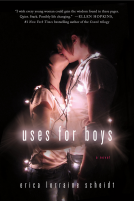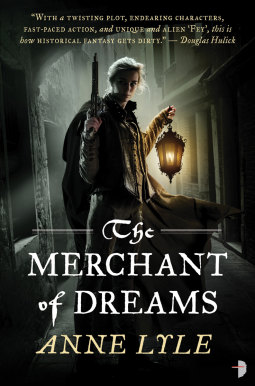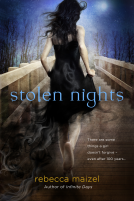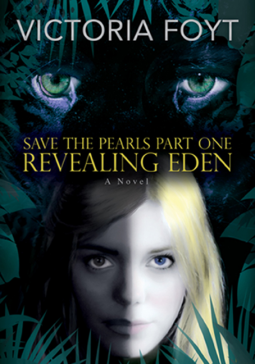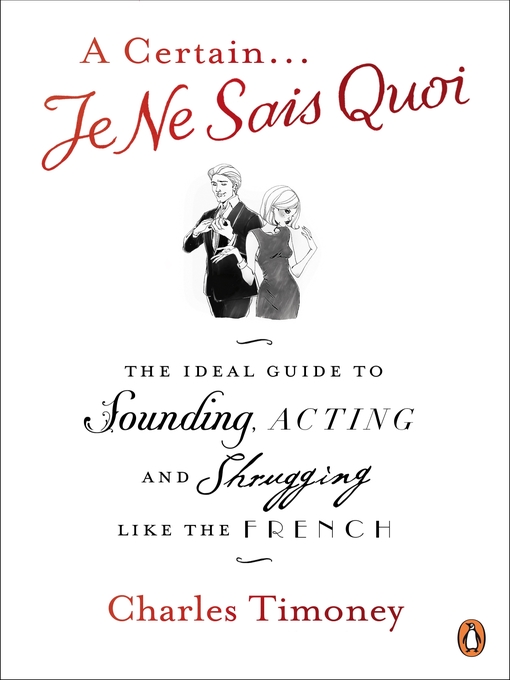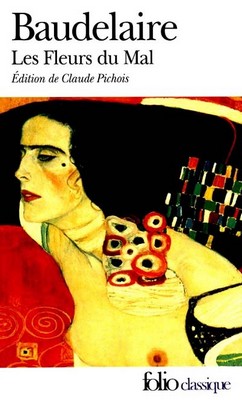What's Hot? French Films.
Le Boucher.
 I have to admit that despite that fact I want to study French at university and that I claim that the thing I love most about French culture is the cinema, I had absolutely no interest whatsoever in watching Le Boucher. The only reason I watched it was because I was roped into doing a Modern Languages Symposium with another school and the topic of 'Claude Chabrol' (French, Nouvelle Vague Director) had already been chosen for my partner and I. That said, it wasn't a bad film at all. Granted, it wasn't exactly to my taste, but I could certainly see its merits.
I have to admit that despite that fact I want to study French at university and that I claim that the thing I love most about French culture is the cinema, I had absolutely no interest whatsoever in watching Le Boucher. The only reason I watched it was because I was roped into doing a Modern Languages Symposium with another school and the topic of 'Claude Chabrol' (French, Nouvelle Vague Director) had already been chosen for my partner and I. That said, it wasn't a bad film at all. Granted, it wasn't exactly to my taste, but I could certainly see its merits.

Le Boucher, a film with a significantly ominous title, is about a school teacher, Helene, who moves back to a small Perigord village to begin a new job. She meets the town butcher, Popaul, at a wedding as they happen to have been placed next to each other during the festivities. Popaul takes a liking to Helene; however, she harbours only platonic feelings for Popaul due to the memories of a particularly bad past relationship. Several women are murdered and Helene thinks she knows who's behind it all - but is she correct?
I didn't read the plot synopsis prior to watching this film so I had absolutely no idea what to expect. When the murders started happening I was really shocked because they were so sudden and unexpected. The beginning of the movie has you fooled into thinking that this is going to be your standard love story, but it is, in fact, nothing of the sort. Claude Chabrol is seen to be Alfred Hitchcock's French counterpart and this thriller focuses on sexual frustration.
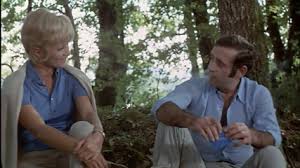
The acting in this film was excellent. The film centres around Popaul and Helene and the other actors don't really get very much on screen action. The relationship between the two is thoroughly bizarre and I think the actors do a good job of portraying that. Interestingly, Helene is played by Stephane Audran, the wife of Claude Chabrol and she is really good at playing a slightly reserved character as she did in Chabrol's short film, La Muette. Jean Yann, who plays Popaul, has a rather sinister look that goes nicely with his character and I was genuinely a bit creeped out by him. (No offence to him). The climatic end is the best part of this film and that is when the actors are really in their element. There is a sudden change in character from one of them which is carried out extremely well and the end of the movie had me gripping the duvet covers in anticipation.

It has been a long time since I watched this film but no distinctly 'New Wave' techniques stood out for me. Chabrol is seen to be one of the pioneers of this French cinema movement; however, nothing about this film shouted 'New Wave' at me. I probably missed something. This film does; however, raise several interesting questions about repression and the representation of people's characters. If you were to look at the basic plot line you would think that you had a good idea of who was in the right and who was in the wrong, but Chabrol blurs the lines between victim and murderer, often making it hard to distinguish between the two, which is intriguing.
All in all this is a great film, though probably one for those with an acquired taste for French thrillers, which probably wipes out a large percentage of viewers. The beginning of the film was slightly dull but then it built up to a brilliantly climatic ending that I wasn't expecting at all. My main criticism of this film is that ketchup-blood was used. Though, New Wave films were all made on a budget so I guess I shouldn't complain too much about that. If your French isn't that great then you'll definitely want to watch this film with subtitles because the language isn't that simple, though you could probably get a good guess at what's going on from the screenplay.


Le Boucher, a film with a significantly ominous title, is about a school teacher, Helene, who moves back to a small Perigord village to begin a new job. She meets the town butcher, Popaul, at a wedding as they happen to have been placed next to each other during the festivities. Popaul takes a liking to Helene; however, she harbours only platonic feelings for Popaul due to the memories of a particularly bad past relationship. Several women are murdered and Helene thinks she knows who's behind it all - but is she correct?
I didn't read the plot synopsis prior to watching this film so I had absolutely no idea what to expect. When the murders started happening I was really shocked because they were so sudden and unexpected. The beginning of the movie has you fooled into thinking that this is going to be your standard love story, but it is, in fact, nothing of the sort. Claude Chabrol is seen to be Alfred Hitchcock's French counterpart and this thriller focuses on sexual frustration.
The acting in this film was excellent. The film centres around Popaul and Helene and the other actors don't really get very much on screen action. The relationship between the two is thoroughly bizarre and I think the actors do a good job of portraying that. Interestingly, Helene is played by Stephane Audran, the wife of Claude Chabrol and she is really good at playing a slightly reserved character as she did in Chabrol's short film, La Muette. Jean Yann, who plays Popaul, has a rather sinister look that goes nicely with his character and I was genuinely a bit creeped out by him. (No offence to him). The climatic end is the best part of this film and that is when the actors are really in their element. There is a sudden change in character from one of them which is carried out extremely well and the end of the movie had me gripping the duvet covers in anticipation.

It has been a long time since I watched this film but no distinctly 'New Wave' techniques stood out for me. Chabrol is seen to be one of the pioneers of this French cinema movement; however, nothing about this film shouted 'New Wave' at me. I probably missed something. This film does; however, raise several interesting questions about repression and the representation of people's characters. If you were to look at the basic plot line you would think that you had a good idea of who was in the right and who was in the wrong, but Chabrol blurs the lines between victim and murderer, often making it hard to distinguish between the two, which is intriguing.
All in all this is a great film, though probably one for those with an acquired taste for French thrillers, which probably wipes out a large percentage of viewers. The beginning of the film was slightly dull but then it built up to a brilliantly climatic ending that I wasn't expecting at all. My main criticism of this film is that ketchup-blood was used. Though, New Wave films were all made on a budget so I guess I shouldn't complain too much about that. If your French isn't that great then you'll definitely want to watch this film with subtitles because the language isn't that simple, though you could probably get a good guess at what's going on from the screenplay.












